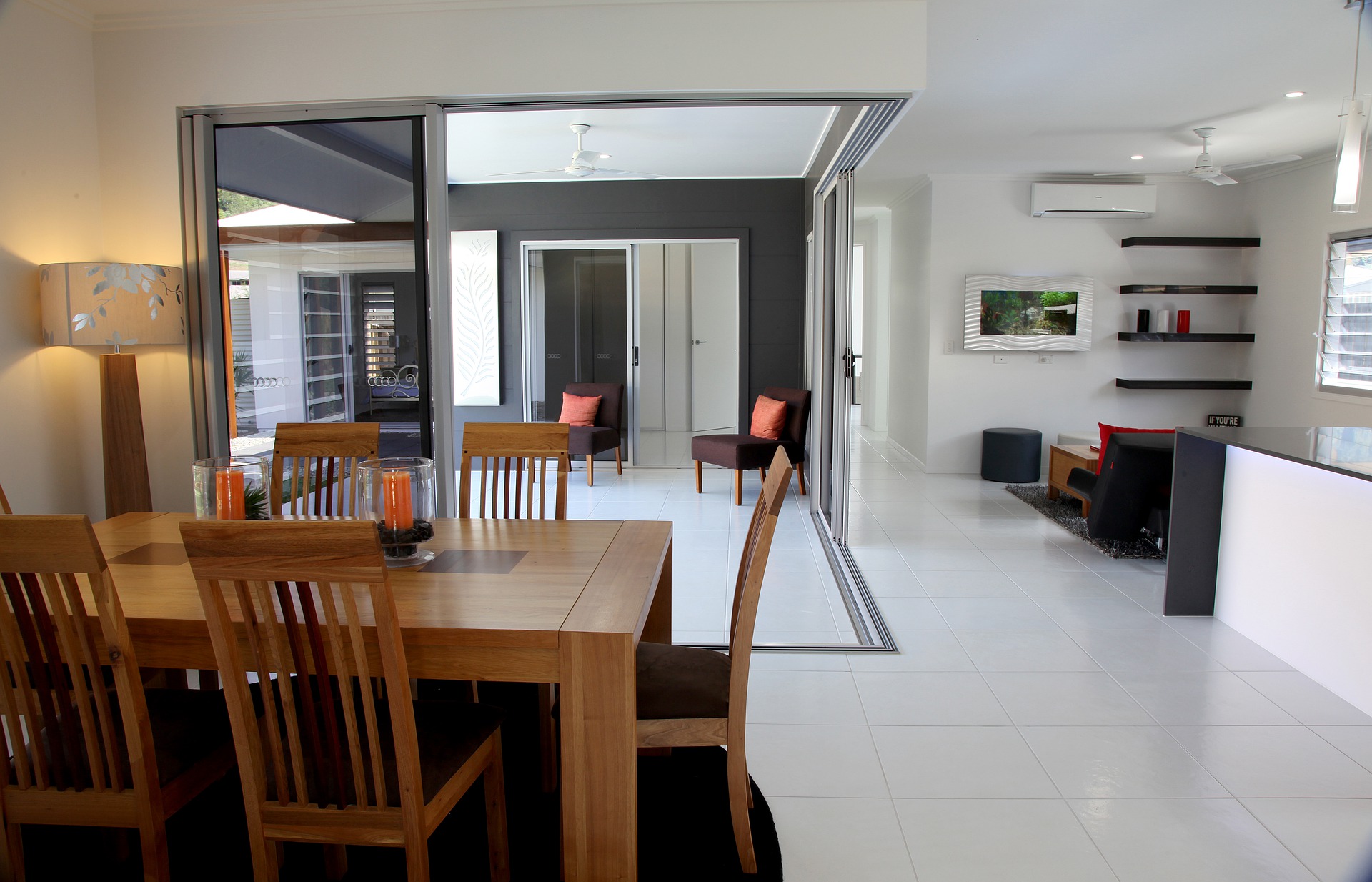How to Create a More Energy-Efficient Home
Energy efficiency involves using less energy to complete a task to eliminate energy waste. Avoid wasting valuable energy by implementing energy-efficient changes inside your own home.
Understand the amazing benefits of conserving energy and simple tips for creating an energy-efficient home.
Benefits of Energy-Efficient Homes
Energy-efficient homes offer numerous financial and environmental benefits for homeowners.
Financial Benefits
Understand the financial benefits of energy-efficient homes.
On average, homeowners spend over one hundred dollars on electric expenses every month, adding up to approximately $2,200 each year. Consciously conserving energy by monitoring energy usage and purchasing energy-efficient devices assists in substantially decreasing expenses and saving about 30% on energy bills. The SAP Calculations establish an energy cost based on the construction of the home, its heating system, internal lighting and any renewable technologies.
Energy-efficient homeowners also qualify for tax credits and rebates, specifically for homes using renewable energy. For example, the Investment Tax Credit allows solar power system owners to deduct 26% of the installation costs from federal taxes. Research different tax credits and rebates to understand how energy-efficient homes benefit financially.
Additionally, homes containing energy-efficient features increase property value. For example, home buyers are prepared to pay premium prices for homes featuring Energy Star appliances or featuring pre-installed solar power systems. Learn more about the benefits of solar energy plans here.
Access the amazing financial benefits by creating an energy-efficient home.
Environmental Benefits
Recognize the environmental benefits of energy-efficient homes to make a meaningful difference.
Traditional forms of electricity, specifically fossil fuels, emit carbon dioxide and other harmful gases during production, increasing pollution and leading to global warming. Altering your energy habits allows you to drastically reduce your carbon footprint to improve air quality and public health as well as effectively combat global warming.
Improve the environment by promoting energy-efficiency within your home.
How to Create an Energy-Efficient Home
Learn essential tips for creating an energy-efficient home to receive the excellent benefits.
Identify Your Energy Usage
Estimate your home’s energy usage to guarantee you successfully implement changes for enhancing your home’s energy efficiency.
Generally, a home’s energy usage consists of air conditioning and heating using 46%, water heating using 14%, appliances using 13%, lighting using 9%, and electronics using 4%. If you’re interested in understanding your home’s specific energy usage, perform an energy audit to receive accurate percentages.
Recognize your home’s average energy usage to begin developing methods for more energy-efficient living.
Initiate Small Changes
Initiate small changes to create a big difference regarding your home’s energy efficiency. Small changes include:
- Sealing and insulating your home to maintain temperatures and reduce heating and cooling expenses
- Installing a smart thermostat to better manage your home’s temperature
- Selecting a lower temperature on your water heater to save money heating water
- Purchasing energy-efficient light bulbs, such as LEDs, to use 75% less energy while guaranteeing long-term results
- Unplugging unused electronics and appliances to eliminate wasted electricity
Discover small changes perfect for inexpensively altering your home’s energy usage one step at a time.
Use Appliances Wisely
Use appliances wisely to significantly enhance your home’s energy efficiency.
Tips for using your appliances better and smarter include keeping the oven and refrigerator doors closed, only running your dishwasher and washer when completely full, choosing microwaves or toaster ovens over regular ovens when possible, allowing your dishes to air dry, and much more. Consider your personal habits to discover the best methods for using your appliances more efficiently.
Additionally, consider purchasing energy-efficient appliances featuring an Energy Star label, including dishwashers, refrigerators, and washers, to immediately conserve energy every time you use an appliance.
Create an energy-efficient home by using your appliances wisely.
Consider Renewable Energy
Consider renewable energy sources to drastically improve your home’s energy usage.
Renewable energy refers to energy created using naturally replenished and inexhaustible resources, including sunlight, wind, and water. Renewable energy is an excellent method for quickly accessing the advantages of energy-efficient homes because the resources are free and environmentally friendly as opposed to fossil fuels.
Solar energy is a popular alternative for homeowners, which involves converting sunlight into usable electricity using photovoltaic technology. Access solar power by installing a residential solar power system or joining a community solar project.
Discover the perfect residential solar power system for you by calculating the kilowatt-hours of power needed for completely covering your home’s energy usage. On average, homeowners require 28 to 34 solar panels, costing anywhere between $10,000 and $40,000 for equipment and installation. Before installing a solar power system, locate a specialty installer to inspect your roof and provide proper installation.
Alternatively, community solar offers the opportunity for a group of people to share electricity generated using solar energy. Community solar projects are funded and operated by third parties, who elect to install numerous solar panels in a certain area. Energy created is delivered to the power grid and distributed by the utility company to homes and businesses subscribed to the service. Locate opportunities for shared solar in New York to instantly receive solar power.
Power your home using renewable energy to enhance your homes overall energy efficiency.
Understand the amazing financial and environmental benefits of conserving energy to motivate you towards creating a more energy-efficient home.

